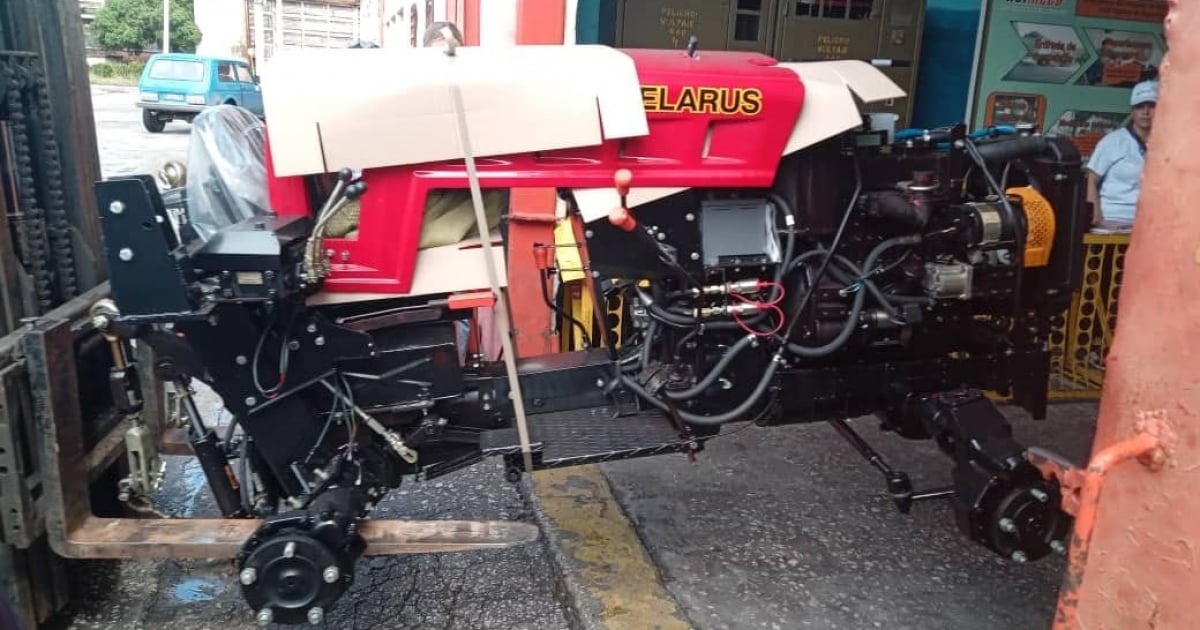The Cuban government is attempting to obtain Minsk engines from Belarus, a significant military and economic ally of the regime.
According to the state news agency of Belarus (BelTA), the general director of the Minsk engine plant (registered trademark MMZ), Aleksandr Botvinnik, met with the Cuban ambassador to Belarus, Santiago Pérez Benítez.
The businessman informed the Cuban diplomat about the production line of the plant: diesel engines of various powers and special machinery.
For his part, Pérez Benítez paid particular attention to the factory’s capabilities and to other products that are part of the holding, such as pumping installations and irrigation machines for agriculture.
The Cuban official did not clarify how Havana would pay for those engines; he simply stated that the cooperation between the two countries holds “strategic importance.”
“The Belarusian technologies and best practices in the manufacturing industry can significantly enhance the efficiency of the Cuban agricultural sector,” remarked the Cuban ambassador.
In Cuba, Minsk motorcycles are very popular, having begun production after World War II.
In 2018, the MMZ engine plant agreed to expand its collaboration with the Island by sending a batch of 84 D-242-71M engines. A delegation from the Cuban Ministry of Agriculture visited the factory to acquire engines and parts for the repair of tractors, trucks, and agricultural machinery.
The then director of the industry indicated that they were also willing to send specialists to Cuba to teach the installation of the engines and the fine-tuning of all technical processes.
In July, it was announced that the Cuban government would pay for a shipment of tractors from the Belarusian capital with rum and coffee.
Both countries had approved a mutual trade plan for the next two years, with an expected exchange of $6.8 million in exports from each; however, trade cannot take place in cash due to the lack of funds in the Caribbean island’s treasury.
Traditionally, Belarus has exchanged tractors for Cuban medicines, but the supply of tractors exceeds the demand for medicine in that country, which offers “flexible” payment methods to its liquidity-challenged partners. In this case, they proposed to expand the list of products for barter operations to include rum, cocoa, coffee, and fruit puree, among others.
Last year, Havana expressed interest in purchasing Belarusian weapons, particularly missiles with a range of up to 300 kilometers.
According to the EFE agency, during a meeting in Havana between representatives of the Armed Forces of both nations, an important military cooperation plan was agreed upon.
Frequently Asked Questions about Cooperation between Cuba and Belarus in the field of Minsk engines
The Cuban government is seeking Minsk engines in Belarus due to the popularity of Minsk motorcycles in Cuba and the strategic interest in improving the efficiency of the agricultural sector. **Belarusian technologies can significantly enhance the efficiency of the Cuban agricultural sector**, according to Cuban Ambassador Santiago Pérez Benítez.
The Cuban official did not clarify how Havana would pay for those engines, although in other agreements with Belarus, Cuba has used barter, offering products such as rum, coffee, and cocoa. **Trade between both nations does not occur with cash due to the lack of liquidity in Cuba.**
In addition to the Minsk engines, other Belarusian products such as pumping facilities and irrigation machines for Cuban agriculture have been discussed. The cooperation also encompasses the military sector, with visits and agreements between the armed forces of both countries.
The expected impact is a significant improvement in the efficiency of the Cuban agricultural sector through the use of Belarusian technologies. The goal is to increase agricultural productivity and modernize the existing infrastructure, which is crucial for the Cuban economy.
